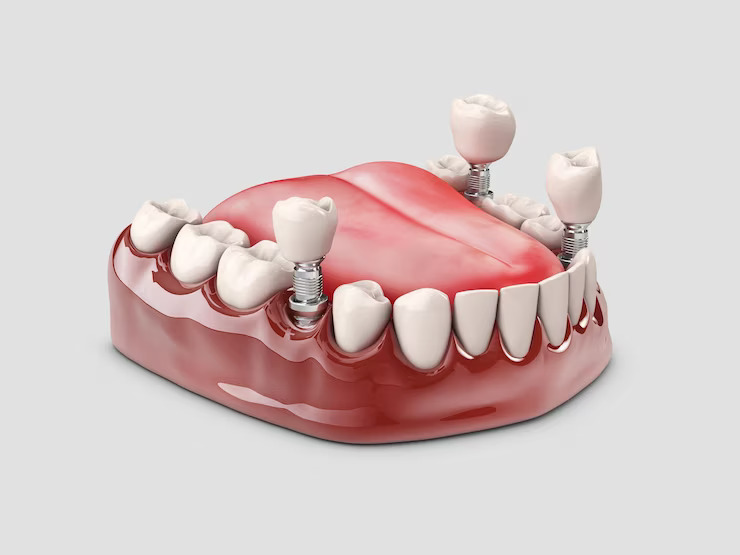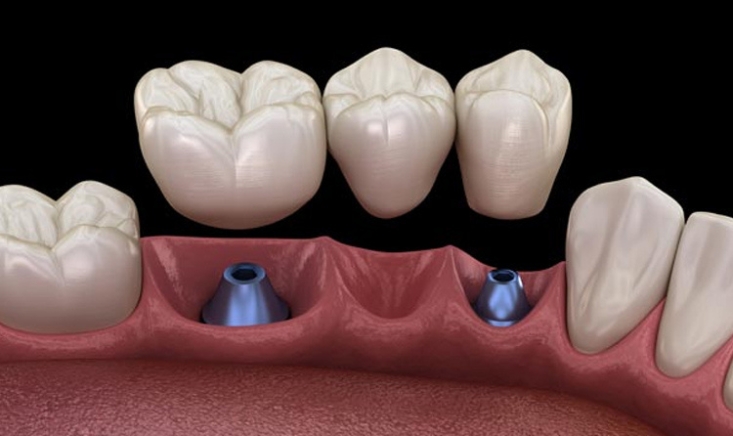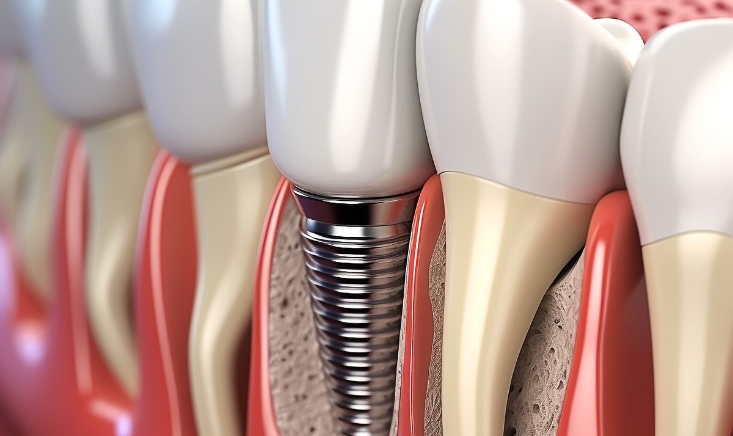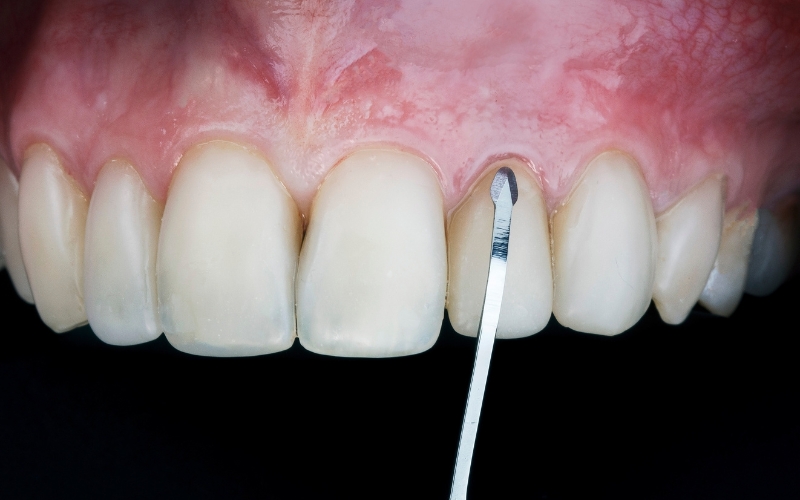2200 AW Grimes Blvd, Suite 100 Round Rock, TX 78665
Dental Implants: Long-Term Success And Maintenance Tips

Are you tired of concealing your smile due to gaps from missing teeth? Dental implants are the perfect solution for your any dental needs. These incredible and long-lasting replacements have revolutionized the field of dentistry, restoring not only your confidence but also your ability to chew and speak with ease. But wait, there’s more! In this blog post, we’re diving deep into the world of dental implants – their long-term success stories and maintenance tips that will keep them gleaming for years. So brace yourself for a journey that will leave you grinning from ear to ear!
Understanding Dental Implants
Dental implants are artificial tooth roots made of biocompatible materials, typically titanium, surgically inserted into the jawbone to replace missing teeth. They provide a sturdy foundation for dental crowns, bridges, or dentures, mimicking real teeth’ natural function and appearance.
The Benefits of Dental Implants
There are several benefits of Dental Implants as compared to traditional dental restorations:
- Improved Aesthetics: Dental implants look and feel like natural teeth, enhancing your smile and restoring your confidence.
- Enhanced Functionality: Unlike dentures, implants allow you to eat and speak easily without worrying about slipping or discomfort.
- Preservation of Jawbone: Implants stimulate the jawbone, preventing bone loss and preserving facial structure.
- Durability: By maintaining proper care and attention, dental implants have the potential to endure throughout your lifetime, serving as a cost-effective, long-lasting option for the future.
Factors Influencing Long-Term Success
Proper Diagnosis and Treatment Planning
The success of dental implants begins with a thorough examination and precise treatment planning:
- Dental Evaluation: Your dentist will assess your oral health, take X-rays, and discuss your medical history to determine if you are a suitable candidate for implants.
- Customized Treatment Plan: Each patient’s needs are unique, so a personalized treatment plan is devised to address your specific dental issues.
- Collaboration with Specialists: Complex cases may require the expertise of dental specialists, such as oral surgeons or periodontists, to ensure successful outcomes.
Skill and Experience of the Dental Professional
Selecting a qualified and experienced dental professional is crucial for the success of your dental implants:
- Credentials and Experience: Research the dentist’s qualifications, experience, and success rates with dental implants.
- Patient Testimonials: Read reviews and testimonials from previous patients to gauge their satisfaction and experiences with the dentist.
- Continuing Education: A dentist who participates in ongoing education and training stays updated on the latest advancements and techniques in implant dentistry.
Bone Quality and Quantity
Sufficient bone density is essential for stable implant placement and successful osseointegration:
- Bone Grafting: If you have inadequate bone, your dentist may recommend bone grafting procedures to build the necessary support for implants.
- Sinus Lift: For implant placement in the upper jaw, a sinus lift may be necessary to increase bone height and accommodate the implants.
- Candidacy Assessment: A thorough examination will determine if you have enough bone to support dental implants or if additional procedures are required.
Implant Placement and Integration
The process of implant placement and osseointegration is crucial for long-term success:
- Surgical Precision: Implants must be placed accurately to ensure proper support and alignment for the prosthetic teeth.
- Osseointegration: This is the process where the implant fuses with the surrounding bone, providing a stable and durable foundation for the restoration.
- Healing Period: Allow sufficient time for osseointegration, typically a few months, before attaching the dental crown, bridge, or denture.
Maintaining Dental Implants for Longevity
Oral Hygiene Practices
Sustaining optimal oral hygiene is crucial to safeguard the health and longevity of your dental implants:
- Brushing: Brush your teeth at least twice daily using a soft-bristled toothbrush and fluoride toothpaste, paying special attention to the implant area.
- Flossing: Use dental floss or interdental brushes to clean between teeth and around the implant, removing plaque and food debris.
- Mouthwash and Irrigators: Alcohol-free mouthwash and a dental irrigator can complement your oral hygiene routine.
Regular Dental Check-ups
Frequent dental visits play a crucial role in the maintenance of dental implants:
- Monitoring Gum Health: Your dentist will examine the health of your gums and surrounding tissues to detect any signs of inflammation or infection.
- Professional Cleaning: Regular dental cleanings help remove stubborn plaque and tartar that can compromise the stability of the implants.
- Early Detection and Prevention: Early detection of any issues allows for prompt treatment and prevents potential complications.
Dietary Habits for Implant Care
Adopting a tooth-friendly diet contributes to the longevity of your dental implants:
- Avoid Chewing Hard Objects: Refrain from chewing on hard objects like ice or using your teeth to open packages, as this can damage the implant and prosthetic teeth.
- Limit Sugary Foods: Reduce sugary snacks and beverages to minimize the risk of tooth decay and gum disease.
- Nutritional Recommendations: A balanced diet rich in vitamins and minerals supports overall oral health and aids in implant maintenance.
Habits to Avoid
Certain habits can negatively impact dental implant longevity:
- Smoking: Smoking can compromise the healing process and osseointegration, increasing the risk of implant failure.
- Alcohol Consumption: Excessive alcohol consumption can lead to dry mouth and gum disease, which may affect the stability of dental implants.
- Bruxism (Teeth Grinding): If you have a teeth-grinding habit, consider wearing a nightguard to protect your implants and natural teeth.
- Sports Protection: If you participate in contact sports, wear a mouthguard to shield your dental implants from potential trauma.
Dental implants offer a remarkable solution for restoring missing teeth with long-term success. Understanding the factors contributing to their success and following proper maintenance practices is essential for preserving your investment and enjoying a confident smile for years. By working closely with a skilled dental professional and adhering to good oral hygiene, you can ensure that your dental implants remain a valuable and lasting asset to your oral health and overall well-being. Embrace the transformation dental implants bring and embark on a journey toward a lifetime of dental confidence.




